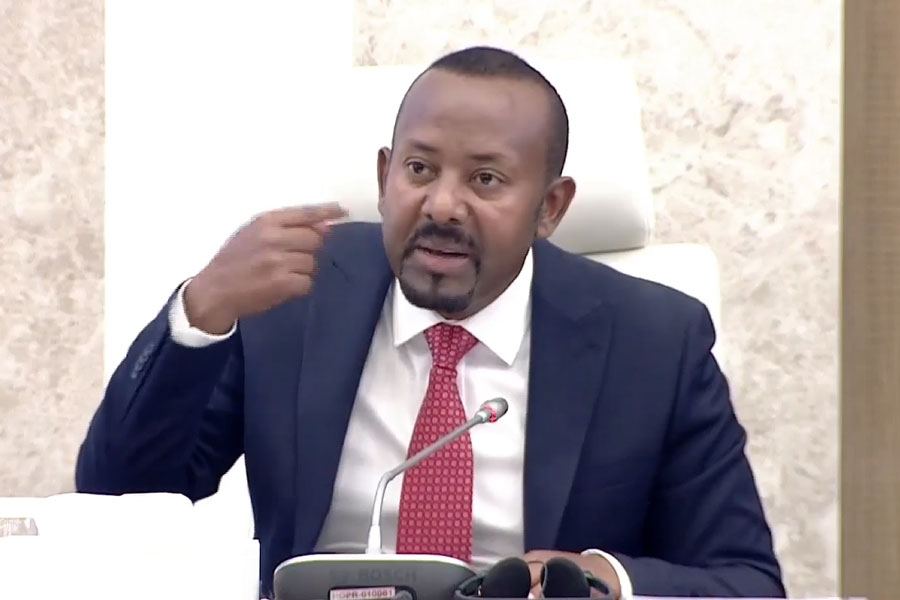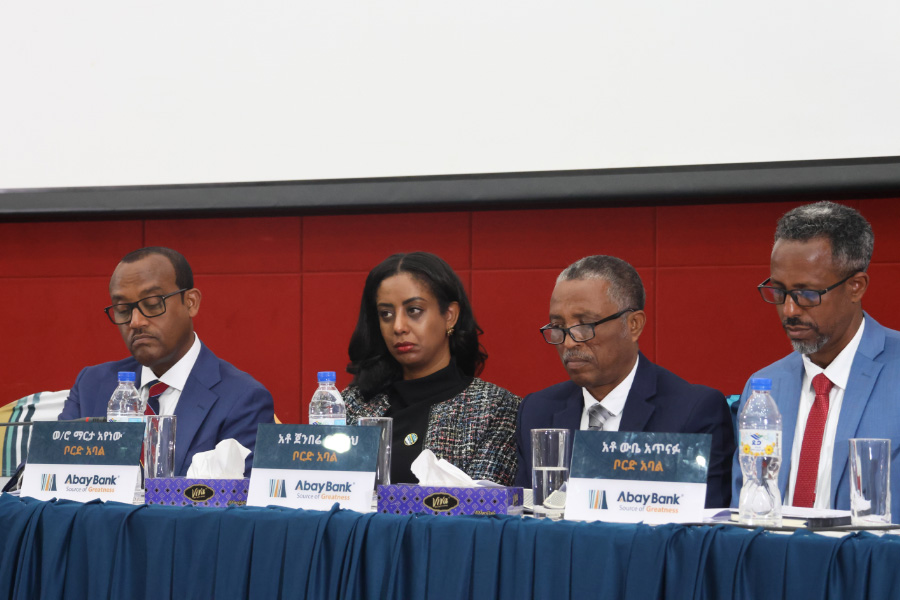
Jan 7 , 2024
The outcome of Ethiopia’s efforts to manage debt and revitalise its economy will have far-reaching implications for its citizens and the broader international community watching closely. Its journey through these tumultuous financial waters will undoubtedly be closely scrutinised, offering critical insights into the complexities of sovereign debt management in the 21st Century, writes this author, whose identity is withheld on request.
Ethiopia may find itself under the spell of a fiscal plight that echoes across the developing world. But its dilemma has uniquely Ethiopian contours. A spectre that looms large over its economy, despite a marginal dip in the debt-to-GDP ratio, a more disconcerting reality unfolds when we consider the absolute figures of debt. It is swelling at an alarming rate.
The International Monetary Fund (IMF) and various economic prognosticators forecast a troubling uptick in this ratio, potentially cresting at an unsettling 50pc by 2024.
In a twist of fiscal fate, Ethiopia recently stumbled, defaulting on a 33 million dollar coupon payment on a Eurobond. More than a mere monetary mishap, this lapse comes against a backdrop of internal strife and high public debt. It also coincides with the government's ongoing negotiations with the IMF for a financial lifeline and its engagement in debt restructuring talks with the G-20 countries.
In a recent talk with over 100 creditors, the federal government sought to allay fears of a default, attributing the missed payment to a strategic decision targeting equitable treatment of all creditors, rather than financial incapacity.
Arguably a tactical gambit, it could signal Ethiopia's commitment to a transparent and inclusive debt restructuring process. Such a strategy might promote trust as it may encourage cooperation among creditors, which is vital for charting a sustainable fiscal path. Alternatively, it could be perceived as a high-stakes negotiation ploy, leveraging the missed payment for more favourable restructuring terms.
However, the consequences of this missed Eurobond payment have been globally adverse.
This fiscal misstep has stoked fears of a sovereign default, an eventuality fraught with dire implications for Ethiopia and the international financial arena. A default could constrict Ethiopia's access to credit, inflate borrowing costs, and precipitate capital flight. It risks eroding global confidence in Ethiopia's economy and governance, potentially stifling foreign investment and trade, and exacerbating its economic woes.
Ethiopia's plight could herald a reevaluation of how developing countries finance their growth.
The spectre of Argentina's 2001 default, which had a protracted and harmful impact on its economy and international standing, should be a cautionary tale. Ethiopia's current strategy, while ostensibly a constructive step towards equitable creditor treatment, has not escaped global censure, reminding the gravity of the situation.
Ethiopia's fiscal landscape is fraught with peril and diplomatic intricacies. Its leaders must demonstrate an unwavering commitment to responsible debt management and engage in constructive dialogue with creditors and the international community. Restoring strained relations with donors, addressing internal security crises, and charting a course towards sustainable economic health are delicate balancing acts.
Ethiopia stands at a crossroads, with its future hinged on the adeptness of its fiscal management and the benevolence of the global economic order.
The immediate priority for Ethiopia’s leaders should be to articulate a clear and credible strategy for managing public debt. This involves placating current creditors and crafting a long-term plan for economic revitalisation. Transparency will be essential. A clear communication of intentions and methods will go a long way in restoring faith among international stakeholders.
They must address the root causes of the country’s economic vulnerabilities, including tackling internal conflicts that have drained resources and undermined investor confidence. Economic reforms aimed at diversifying revenue sources, improving domestic productivity, and enhancing the business environment are essential to reduce reliance on external borrowing.
The international community's role is equally crucial.
Ethiopia presents a test case for global financial institutions and creditor nations in managing sovereign debt crises. A balanced approach is required, one that ensures debt sustainability without stifling the country's economic growth. The G-20's Common Framework for Debt Treatments beyond the Debt Service Suspension Initiative (DSSI) could play a significant role, offering a structured approach to debt resolution.
Ethiopia's situation also raises broader questions about the sustainability of debt-driven development models in emerging economies. The ongoing global economic headwinds, including rising interest rates and tightening global financial conditions, further complicate the picture. As such, Ethiopia's plight could herald a reevaluation of how developing countries finance their growth, with potential implications for the global economic order.
The path Ethiopia’s leaders choose will not only determine their country’s economic future but also offer valuable lessons for other countries grappling with similar crises. The country's ability to navigate this fiscal storm will be a litmus test for its resilience and a pointer to the evolving dynamics of global finance and development.
PUBLISHED ON
Jan 07,2024 [ VOL
24 , NO
1236]

Viewpoints | Sep 10,2023

Radar | Nov 24,2024

Agenda | Jun 07,2022

Radar | Apr 24,2023

Fortune News | Nov 21,2018

My Opinion | Jan 30,2022

Advertorials | Jul 25,2025

Radar | Nov 24,2024

Fortune News | Jul 03,2024

Radar | Apr 08,2023

Photo Gallery | 177927 Views | May 06,2019

Photo Gallery | 168138 Views | Apr 26,2019

Photo Gallery | 158866 Views | Oct 06,2021

My Opinion | 137029 Views | Aug 14,2021
Commentaries | Oct 25,2025

Dec 22 , 2024 . By TIZITA SHEWAFERAW
Charged with transforming colossal state-owned enterprises into modern and competitiv...

Aug 18 , 2024 . By AKSAH ITALO
Although predictable Yonas Zerihun's job in the ride-hailing service is not immune to...

Jul 28 , 2024 . By TIZITA SHEWAFERAW
Unhabitual, perhaps too many, Samuel Gebreyohannes, 38, used to occasionally enjoy a couple of beers at breakfast. However, he recently swit...

Jul 13 , 2024 . By AKSAH ITALO
Investors who rely on tractors, trucks, and field vehicles for commuting, transporting commodities, and f...

Oct 25 , 2025
The regulatory machinery is on overdrive. In only two years, no fewer than 35 new pro...

Oct 18 , 2025
The political establishment, notably the ruling party and its top brass, has become p...

Oct 11 , 2025
Ladislas Farago, a roving Associated Press (AP) correspondent, arrived in Ethiopia in...

Oct 4 , 2025
Eyob Tekalegn (PhD) had been in the Governor's chair for only weeks when, on Septembe...

Oct 25 , 2025 . By YITBAREK GETACHEW
Officials of the Addis Abeba's Education Bureau have embarked on an ambitious experim...

Oct 26 , 2025 . By YITBAREK GETACHEW
The federal government is making a landmark shift in its investment incentive regime...

Oct 27 , 2025
The National Bank of Ethiopia (NBE) is preparing to issue a directive that will funda...

Oct 26 , 2025 . By SURAFEL MULUGETA
A community of booksellers shadowing the Ethiopian National Theatre has been jolted b...